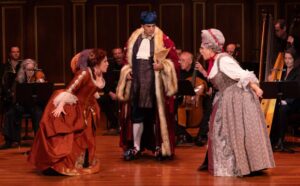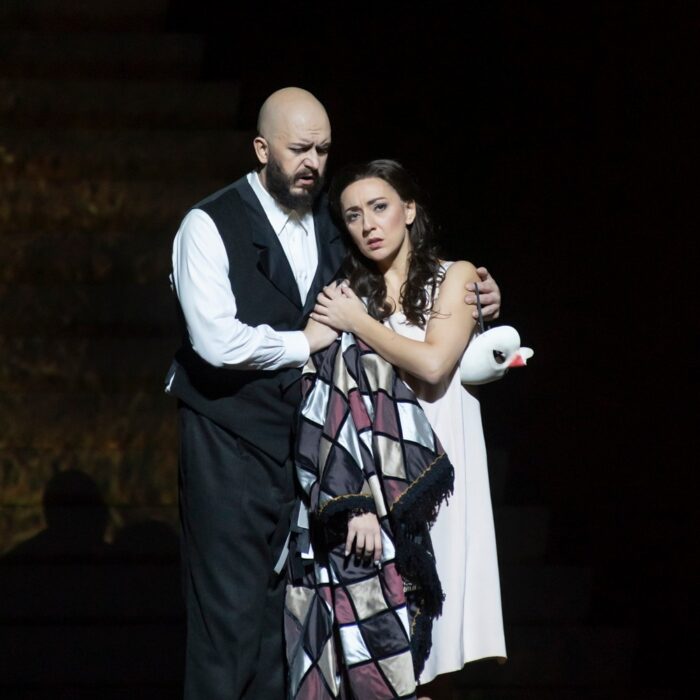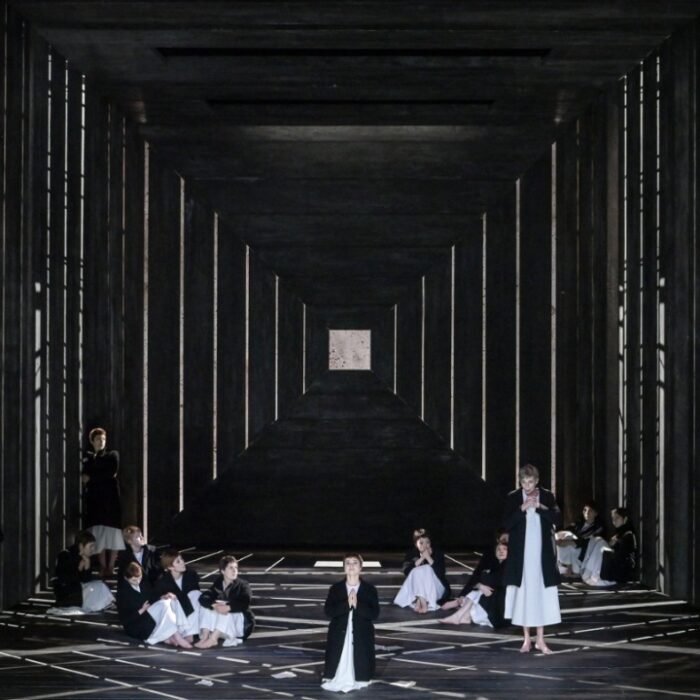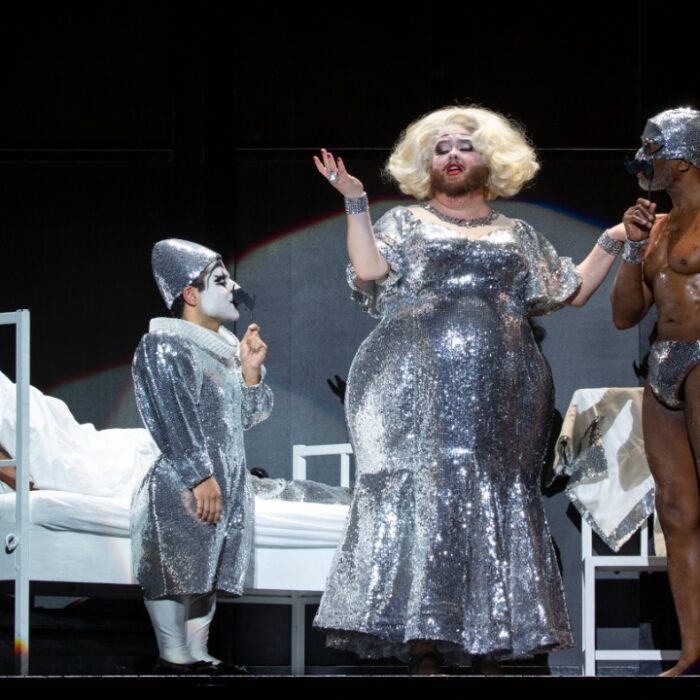
Boston Early Music Festival 2023 Review: The Dragon of Wantley
By João Marcos CopertinoCredit: Kathy Wittman
It might be ingenuous to say, but in one’s opinion any opera that features a dragon singing a long melisma on the word “whore,” especially when it follows the ominous words “son of a,” is an unforgettable piece of theater. “The Dragon of Wantley” is based on the old legend that a dragon roamed South Yorkshire, a region now occupied by the insufferably placated city of Sheffield, and a legend that served as the basis of the plot of a few poems and a comic opera. The opera, with music by John Frederick Lampe and text by Henry Carey, had some success in the eighteenth century, but it was not until very recently that it has gained a small — but solid — amount of attention from musicologists and performers.
The Boston Early Music Festival’s production of “The Dragon” showcases the opera at its best. Although the production is a “staged concert,” the theatrical direction of Gilbert Blin and the costumes by Seth Bodie might make one forget the production’s theatrical austerity.
Beyond the eccentricity of its plot and the comic vulgarity of its language, “The Dragon” needs a strong cast, and a great sense of comic timing for it to work well. Blin, then, led his cast to the most histrionic comic acting possible — overly emphasizing the theatricality of the stage. His bet paid off, and the cast seemed to have had a lot of fun while playing caricatures of caricatures of humans — perhaps the only solution in an opera where a buffoon of a knight kills a dragon in an act that, far too explicit to be called innuendo, can only be called anal penetration.
In a genuinely funny performance, the singers’ vocal assets were undermined by their very particular capacity to sing comically. In this, they were but responding to the material: all the vocal challenges, and there were more than a few, are inferior to the acting demands of the play. In that regard, both vocalists and dancers played their parts more than well.
The female lead, Teresa Wakim, played Margery with the airs of a prima donna in search of a stage. Her voice, extremely proper to the baroque repertoire, was used with perfect inclination for dramatic tension. Her movements, always exaggerated, clearly lit up the night’s aura.
Bass-baritone Douglas Williams as Gaffer Gubbins began the night with excellent English elocution in a spoken prologue, and progressively managed to bring a sense of self-importance that only enhanced the comedy. In an opera where the libretto is arguably wittier than the music, Williams managed to draw laughter by simply enunciating the verses “He [the dragon] eat them up/As one would eat an apple.” “Apple,” according to a most beloved source, was hilarious precisely due to Williams’ timing in separating the syllables, and its coordination with the elongated “a” in coloratura.
Soprano Hannah De Priest performed the antagonist role of Mauxalinda with her congenial voice and strong scenic personality. Again, the libretto did much to help her — who would not laugh at a love duo starting with “Pigs shall not be,/ So fond as we?” Her voice, with a clearer and more focused tone than anyone else in the cast, suffered a little bit in the lower-range demands of the role, but nothing that compromised her acting. Moreover, De Priest’s Mauxalinda was unafraid to enjoy the most erotic tonalities of her character. From the phallic suggestions to what Blind understood to be an allusion to a threesome, De Priest embodied the role of the most fleshy character of the night.
Tenor Aaron Sheehan incarnated the always-drunk knight Moore of Moore-Hall with a certain decency that kept the opera from any shadow of moralism. Although the most obvious reference would be Falstaff, the tenor — with a light tone and an English pronunciation made his praising songs to wine an almost serious moment in the opera. His good comic timing was shown when carrying an empty urinal; people in the audience covered their heads when he mimed spilling it on them…
Bass-baritone John Taylor Ward gave to the Dragon much scenic presence. His well-crafted costumes did help vocally, however the singer sounded a bit opaquer than expected. After all, what is a dragon is meant to sound like? But, he succeeded in making a small vocal part scenically emblematic.
Dancers Sonam Tshedzom Tingkhye and Julian Donahue were excellent in all the ballets. Their great timing seems to have been shared by the vocal cast, too.
The Boston Early Music Festival Chamber Ensemble and its Dance company were pretty extraordinary as usual, giving to Lampe’s music a sense of seriousness and precision that otherwise would have cracked the opera.
Certainly, this is an opera that once seen, one cannot forget. BEMF’s production of “The Dragon of Wantley” will please anyone that truly enjoys baroque music or is in search of some humorous show. One might certainly leave the theater happier than when they entered.


